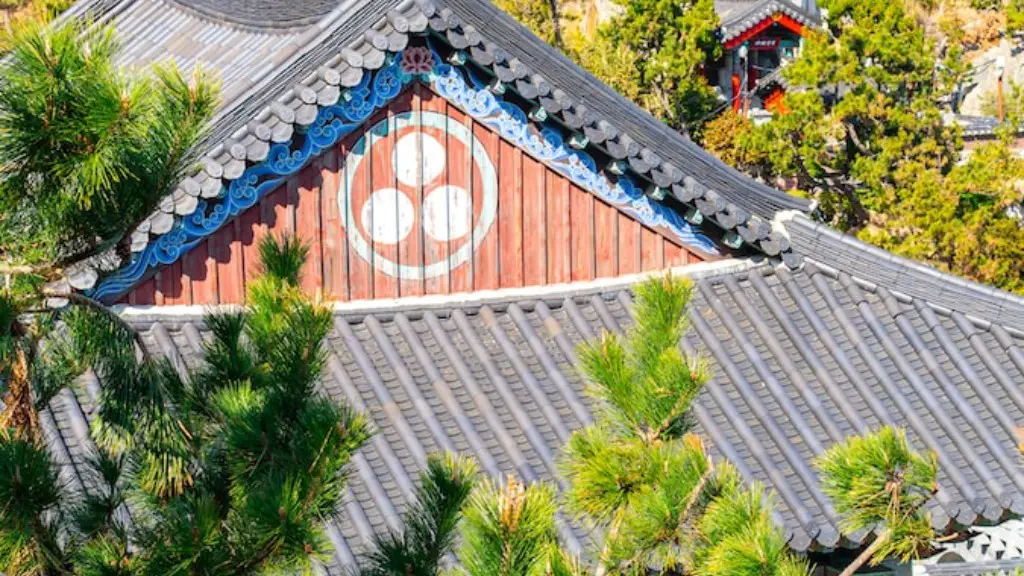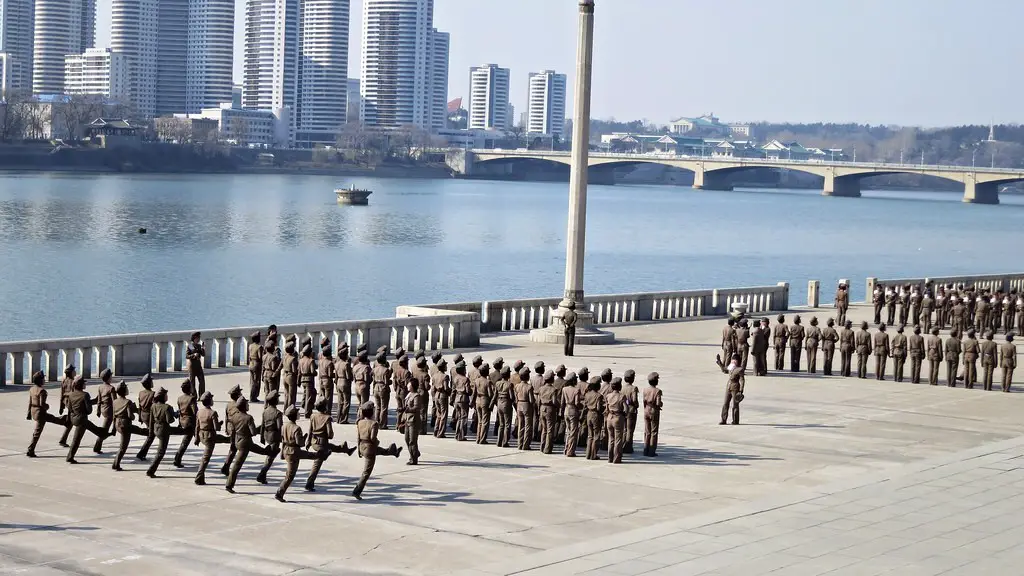North Korea is a country that everyone seems to hate. From Hollywood movies casting villains hailing from the Hermit Kingdom, to politicians who scapegoat its people in their speeches and the lack of global recognition in the corporate world, the hate it seems, is universal. But why?
The list of wrong human rights’ violation, policy decisions and outright refusal to cooperate with other countries is endless, so it’s no surprise that North Korea has earned a rather bad reputation amongst most of the international community. For example, North Korea’s leaders continue to enforce abysmal human rights policies and disregard for basic humanitarian considerations. Political dissent is strictly prohibited and can easily lead to imprisonment and even death, citizens aren’t allowed to leave their country and access to the internet is highly restricted.
Not only is its government characterized by enormous corruption and blatant disregard for law, but its citizens are subjected to extreme poverty, malnutrition and violence. This widespread poverty can partially be attributed to North Korean leaders’ obsession with militarism and nuclear threats against the rest of the world, which both discourage foreign investors, and wastes a tremendous amount of resources that could have been put to far better use.
It’s also worth noting that North Korea’s isolation is self-inflicted and that its diplomatic relations with the world have been negative for many decades now. North Korea is known to terminate its relationships with other countries over minor differences, or simply because of a leader’s change of opinion at a given moment, which again furthers its reputation as a rogue state.
Moreover, North Korea’s foreign policy is often cryptic, unpredictable and sometimes downright hostile, often trading threats and intimidation in lieu of diplomatic solutions. Under the rule of its former leader Kim Jong-il, the country made it its mission to work against international efforts such as security council resolutions and arms control pacts.
In the end, North Korea’s persistent hostility and blatant disregard for global law and order, combined with its inhumane treatment of its citizens make it one of the most isolated countries in the world and one of the most detested.
What are the Consequences?
The consequences of North Korea’s policies are significant and have had reverberations throughout the region. North Korea’s outward aggression has led to considerable regional instability, highlighted by cases such as the sinking of South Korean naval vessels in 2010, which experts suspect was orchestrated by the North. Furthermore, North Korea’s weapons of mass destruction programs have contributed to the caution and wariness of many states in its vicinity. For example, South Korea and Japan both maintain a large military presence in order to protect themselves from any potential North Korean attack.
Additionally, North Korea’s actions have made it significantly harder to make progress in international security, stability and peace settlements in the region. For example, many attempts have been made to hold talks with North Korean leaders, yet these have consistently failed as North Korea often reneged on agreements and refused to cooperate with foreign entities.
Perhaps one of the biggest consequences is that North Korea contributes to the rising view of a world constantly in an arms race, leading to a collective effort to develop weapons of mass destruction that endangers the security of all nations. As such, countries throughout the world have seen their arms expenditures increase as a result of North Korea’s refusal to remain a cooperative actor in international politics.
The Role of Other Nations
The past several decades have seen an increase in international attempts to isolate North Korea, both economically and diplomatically. The United Nations has imposed tough economic sanctions on North Korea, where countries are encouraged to stop and even reverse existing economic and trade relations with the country. A few countries, such as Russia and China, have made attempts to bridge the gap between North Korea and the rest of the world, yet these have largely been in vain. Furthermore, international organisations have sought to use the diplomatic pressure of other countries to force North Korea to comply with its international obligations.
Additionally, countries such as the United States, South Korea and Japan have made attempts to try and improve human rights in North Korea. While there have been major successes in this effort, such as the release of certain political prisoners, North Korea continues to deny its citizens basic rights, and in many cases, torture and imprison those found guilty of minor offences.
Notably, l the United States has been the main proponent of economic sanctions against North Korea, often pushing for tougher measures from international organisations and other countries in the region. At times, the United States has even resorted to the use of military action, such as with its famous “Axis of Evil” campaign, during which President George W. Bush sent American troops to the Korean Peninsula in an effort to contain the North Korean nuclear threat.
Can North Korea Change?
Although North Korea has been a largely isolated figure in the past, some experts have noted a potential shift in North Korean behaviour. North Korea’s new leader, Kim Jong-un, has expressed a desire to open the country and improve its relationship with the international community. For example, the South Korean government has expressed interest in engaging with North Korea, provided the country makes efforts to improve human rights and to reduce its nuclear capabilities.
In addition, some organisations have gone as far as to suggest that North Korea should be given a chance to transform itself and join the rest of the world as a peaceful, productive member of the global community, albeit with modest expectations. For example, Human Rights Watch has proposed that in order to accomplish this goal, North Korea must continue to open itself to outside scrutiny and implement meaningful economic reforms.
There are also some who argue that sanctions against North Korea should not be completely withdrawn, as this could allow for the current leaders to further abuse its citizens and become even more anti-democratic. Rather, some advocate that sanctions should remain in place and be used as a tool to slowly force the country to move toward more responsible practices.
The Future for North Korea
The future of North Korea remains uncertain and its policies will continue to be met with opposition from most of the international community. However, some argue that North Korea could eventually become a different kind of state, one which embraces certain universal principles and works together with the world to become a respected member of the global community. In order for this to happen, though, North Korea must first make substantive changes in its policies, and even then, full global acceptance might be difficult to attain.
Nevertheless, there is still hope for a better future, particularly given the renewed effort by the international community to encourage North Korea to open up and become more transparent. This, combined with the prospect of future economic growth and a more progressive foreign policy, could lead to steady improvement for the country and eventually, its full reintegration into the global economy.
The Impact of North Korea Beyond Politics
Beyond its political impact, North Korea’s presence in the world is also having a cultural and economic impact on those around it. For instance, the country’s international reputation has had a detrimental impact on a number of industries, particularly travel. While some countries are still willing to accept tourists from North Korea, it can be difficult for citizens to get visas, as well as dangerous for those who choose to travel there due to the country’s ominous reputation.
Moreover, North Korea’s large cultural presence has contributed to an increase in fear and mistrust throughout the region. As such, those in neighbouring countries perceive North Koreans as dangerous, untrustworthy and mysterious, a stigma that affects how the world sees them.
In addition, the threat of North Korean missiles and weapons has changed the course of numerous international negotiations, often for the worse. For example, North Korea’s insistence on developing nuclear technology has caused many countries, including the United States, to take a hardline stance against negotiating with the country, while its aggressive rhetoric and military posturing have caused some countries to raise defence spending and add new military personnel.
What Can We Do?
In the face of North Korea’s provocative actions, there are steps that individuals, governments and international organisations can take to try and deescalate the situation. At an individual level, it is important to learn the facts and have an understanding of the issue, in order to gain a better sense of why North Korea behaves in the way it does. Such knowledge is essential in order to counter the often one-sided views of North Korea portrayed in the media.
At a governmental level, it is important for countries to continue to support international efforts to bring about peace and stability in the region and to encourage dialogue between North Korea and other countries. In addition, it is necessary for countries to provide support for those on the ground in North Korea, such as activists and human rights organisations, in order to help provide constructive change in the country.
Finally, international organisations should continue to promote dialogue between North Korean leaders and members of the international community, as well as work to create an international environment in which North Korean citizens can eventually live without fear of oppressive policies. Additionally, international organisations should also continue to impose economic sanctions on North Korea, as these are one of the few ways to make North Korea responsive to the international community.





